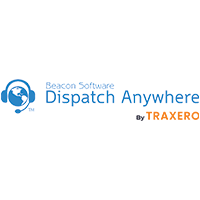Yes, most modern towing software can be accessed from numerous devices and platforms. This means that the software can be used on any computer, tablet, or smartphone, regardless of operating system. This makes it easy for towing companies to obtain critical information and manage their operations from anywhere. It also enables smooth communication and coordination among drivers, dispatchers, and management.
List of Best Towing Software
AUTOsist - the most efficient fleet management and maintenance software on the market. Our user-friendly interface allows for simplified workflow by centralizing operations such as managing email and PDF records, generating reports, assigning vehicle...Read More AUTOsist
HouseCall Pro is a versatile software solution that simplifies business processes for service professionals. Its cloud-based platform offers a range of features including job scheduling, dispatching technicians, invoicing, payment processing, custome...Read More HouseCall Pro
Datow is a towing management software that caters to the specific requirements of towing companies, regardless of their size. Equipped with advanced capabilities like billing, invoicing, lot management, routing, fuel management, client and fleet mana...Read More DATOW
Dispatch Anywhere by TRAXERO is a solution for tow truck dispatchers, operators, managers, and owners. Designed to meet the unique needs of the towing and roadside assistance industry, this software is perfect for motor club and light to medium-duty...Read More Dispatch Anywhere by TRAXERO
Towbook Management Softwaresolution for towing businesses. Our all-in-one software streamlines dispatching, billing, and lot management, giving you complete control over your operations. With a user-friendly mobile app for Android and iOS, you can st...Read More Towbook
Omadi is the leading towing software that transforms the way you run your business. Our all-inclusive platform streamlines your processes, allowing you to effectively oversee, evaluate, and enhance your operations. With automated tasks, Omadi increas...Read More Omadi
Towed, the one-stop solution for all your towing management tasks. Our advanced software streamlines lien processing, fleet tracking, employee management, A/R balancing, damage claims, and call handling. Say goodbye to manual processes and streamline...Read More Towed
Tow Administrator is a software for successful towing business management. Enjoy a seamless experience with its efficient features, such as detailed search functions and document monitoring. Stay on top of your business performance and make strategic...Read More Tow Administrator
Samsara - an innovative software solution that revolutionizes fleet management, safety, and productivity for businesses. By leveraging IoT data and delivering real-time insights, Samsara simplifies operations and empowers businesses to make data-back...Read More Samsara
Experience the ultimate fleet management solution with WEBFLEET. This state-of-the-art software offers real-time vehicle tracking, driver behavior monitoring, and route optimization to streamline operations, reduce fuel costs, and ensure compliance w...Read More WEBFLEET
Learn More About Towing Software
- What Is Towing Software?
- What Are The Recent Trends In Towing Software?
- Benefits Of Using Towing Software
- Important Factors To Consider While Purchasing Towing Software?
- What Are The Key Features To Look For In Towing Software?
- Why Do Businesses Need Towing Software?
- How Much Time Is Required To Implement Towing Software?
- What Is The Level Of Customization Available In Towing Software?
- Which Industries Can Benefit The Most From Towing Software?
- Conclusion
What Is Towing Software?
Towing software is a sort of computer application that is tailored to the needs of towing companies and people. It helps to optimize and automate different towing business activities, such as dispatching, billing, and inventory management. This program is an indispensable tool for towing companies since it increases productivity, decreases errors, and saves time and money. One of the most important elements of towing software is its dispatching capabilities.
It enables tow truck drivers to receive real-time work alerts and directions to a customer's vehicle, resulting in a more structured and effective dispatch process. This functionality also allows management to monitor the status of each tow truck and the completion of assigned jobs, ensuring that clients receive timely and effective service. Another key feature of towing software is its billing and invoicing capabilities.
It automates the billing process, generating invoices and keeping track of payments. This removes the need for manual invoicing and minimizes errors, resulting in accurate and timely billing for consumers. Some towing software also integrates with common accounting software, making billing even more convenient. Towing software also aids inventory management by keeping track of the equipment and materials required for each tow job.
This feature enables businesses to check their inventory levels and resupply as needed to avoid delays and service disruptions. Furthermore, some software includes asset monitoring, which allows businesses to keep track of their fleet of tow trucks and equipment. Aside from these critical capabilities, towing software frequently adds extra features like GPS tracking, customer management, and reporting.
GPS tracking allows managers to track the whereabouts of their tow trucks in real time, enhancing productivity and ensuring that drivers follow the most effective routes. Customer management capabilities enable businesses to keep thorough records on their clients, such as contact information and service history. Reporting tools provide significant insights into the business's performance, allowing owners and managers to make educated decisions.
What Are The Recent Trends In Towing Software?
In recent years, the towing sector has seen considerable technological improvements, resulting in the development of unique software solutions tailored exclusively for towing organizations. These software solutions include a variety of features and capacities, making them an indispensable tool for any towing firm.
Let's explore, we'll go over the latest trends in towing software to help you make an informed decision when selecting the best software for your business.
1. Integration Of GPS Tracking: GPS tracking features are becoming increasingly popular in towing software. This tool enables tow truck drivers to readily discover their customers' locations and arrange the most efficient path to visit them. It also allows dispatchers to follow the whereabouts of their drivers in real time, ensuring prompt and effective service. Towing firms can improve customer service by using GPS tracking to provide precise anticipated arrival times and monitor driver performance.
2. Cloud-Based Solutions: Cloud-based towing software is becoming increasingly popular because to its flexibility and accessibility. This type of software enables users to view and manage data from any device with an internet connection. Cloud-based solutions allow businesses to streamline their process, improve communication between drivers and dispatchers, and gain real-time access to data and reports. Furthermore, cloud-based software reduces the need for expensive hardware, allowing for more affordable pricing levels.
3. Mobile Applications: Mobile applications have transformed the towing industry, making it easier for businesses to manage their operations on the road. A mobile app allows drivers to effortlessly accept task assignments, update their status, and make reports. The software allows dispatchers to follow drivers' locations, communicate with them, and deliver task data. These features decrease paperwork, boost efficiency, and promote communication among team members.
4. Data Analytics: Data analytics is becoming increasingly important for towing companies in tracking and analyzing their performance. Towing software now includes comprehensive analytics features, enabling businesses to generate data on characteristics such as response times, job completion rates, and revenue. These insights can help businesses identify areas for improvement, optimize operations, and make data-driven decisions to improve overall business performance.
5. Payment Integration: Another new trend in towing software is the addition of payment processing capabilities, which makes it easier for businesses to collect payments and handle their finances. Payment connection enables businesses to send invoices and payment requests directly to clients via the software. This function also reduces the inconvenience of manually tracking payments, lowering the possibility of human error and increasing productivity.
Benefits Of Using Towing Software
Towing firms are continually challenged to manage their operations efficiently and effectively. Towing software can help by streamlining processes and enhancing productivity.
Let's explore, we'll look at the top advantages of employing towing software for your business.
1. Improved Dispatching And Scheduling: One of the key advantages of towing software is its ability to simplify the dispatching and scheduling processes. Towing firms can efficiently assign assignments to drivers and optimize their routes by using real-time GPS tracking and computerized dispatching. This saves time, lowers fuel costs, and enhances customer service.
2. Automated Invoicing And Billing: Towing software also provides the ease of automatic invoicing and billing, removing the need for human documentation. Client information and job specifics may be simply kept and accessed when it comes time to bill them. This not only saves time, but also lowers the possibility of errors and improves cash flow.
3. Improved Customer Service: In today's competitive economy, offering good customer service is critical to the success of any company. Towing software enables quick and easy connection with clients, providing them with real-time updates on their service requests. This leads to higher client satisfaction and retention.
4. Streamlined Vehicle Management: Towing firms deal with a diverse range of cars, making it difficult to keep track of their maintenance, repair, and insurance needs. Towing software makes this process easier by enabling for digital record-keeping and automated reminders about forthcoming maintenance or insurance renewals. This guarantees that your fleet is always in excellent shape, lowering the likelihood of breakdowns and downtime.
5. Comprehensive Reporting And Analysis: Towing software offers detailed analytics and reporting on different elements of your business, including vehicle utilization, employment history, and finances. This enables owners and managers to make more informed decisions and uncover opportunities for development. The ability to examine data enables improved planning and forecasting for future growth.
6. Integration With Other Systems: Towing software can be coupled with other systems, like as accounting software or GPS monitoring, to ensure a smooth flow of data across departments. This eliminates duplication of effort and simplifies data handling, resulting in enhanced productivity and accuracy.
Important Factors To Consider While Purchasing Towing Software?
When it comes to selecting towing software, it's critical to weigh several elements in order to make an informed purchase. Choosing the appropriate towing software is critical for controlling and simplifying operations, and it may have a significant impact on your company's productivity and performance.
Here are some crucial considerations to consider when acquiring towing software:
1. User-Friendly Interface: The software's usability is an important consideration. It should have a simple and straightforward interface that both new and experienced users can learn and navigate. This will save time and resources in training and ensure a smooth transition for your workforce.
2. Features And Functionality: Another important factor to consider when choosing towing software is the variety of features and functionality available. From dispatching and tracking to billing and inventory management, ensure that the software includes all of the necessary capabilities to satisfy your specific business requirements.
3. Compatibility And Integration: Determine whether the program is compatible with your existing systems and equipment. It should connect seamlessly with your existing configuration to avoid disruptions or additional costs. Check for interoperability with numerous devices, including desktop, mobile, and tablet, to ensure easy access and management.
4. Customization Options: Because each towing company operates differently, it is critical to have software that can be adjusted to meet your specific needs. Look for software that allows you to customize workflows, reports, and settings to meet your specific business needs.
5. Assistance And Training: Effective customer assistance and training are critical to the effective adoption and usage of towing software. Make sure the software provider provides comprehensive training and continuous support to enable your team fully utilize the platform's potential.
6. Security And Data Backup: Towing software handles sensitive data such client information, payment information, and vehicle information. To safeguard the safety and confidentiality of your data, you must investigate the software's security features and data backup alternatives.
7. Pricing And Value For Money: Finally, analyze the software's pricing structure and the value it provides to your organization. Look for software that is reasonably priced and provides a strong return on investment by enhancing efficiency, lowering costs, and generating income.
What Are The Key Features To Look For In Towing Software?
When it comes to running a towing company, having the correct software can make all the difference. Towing software includes a variety of functions to help streamline operations, increase efficiency, and improve customer service. However, with so many options on the market, purchasers may struggle to choose which crucial qualities to seek for.
To make your decision easier, below are the top things to look for while searching for towing software.
1. Dispatching And Scheduling: The ability to dispatch and schedule jobs is one of the most significant things to look for when purchasing towing software. This function enables you to simply assign drivers and vehicles to jobs, monitor their location and progress, and manage appointments. Look for software with an easy-to-use interface and real-time updates to ensure a seamless and fast dispatch procedure.
2. GPS Tracking: In today's fast-paced environment, clients want real-time information about the position of their tow truck. GPS tracking is an essential feature for any towing software because it allows you to track the location of your drivers and vehicles and provide exact arrival times to consumers. This function not only increases client satisfaction, but also allows you to monitor and optimize the operation of your fleet.
3. Invoicing And Payment: Any business, including towing, need efficient billing and payment systems. Look for software that allows for automatic invoicing and payment choices to save time and prevent errors. This tool also lets you keep track of payments and outstanding invoices, providing you more control over your finances.
4. Vehicle And Client Management: To run a successful towing business, you must keep accurate records of your client and vehicle information. Look for software with user-friendly customer and vehicle management features. This includes the option to save customer information, vehicle data, service history, and any notes or specific instructions. This feature allows you to deliver individualized assistance to your consumers while keeping detailed records for future reference.
5. Integration: Towing companies frequently utilize many software and solutions to manage various elements of their operations. Look for software that can integrate with other applications you use, such as accounting or fleet management software. This assures smooth data flow and removes the need for manual data entry, saving you time and lowering the risk of errors.
Why Do Businesses Need Towing Software?
Businesses in the towing sector realize the value of efficiency and structure. With increased demand for towing services, firms must stay competitive and ensure seamless operations. Here is where towing software comes into play. Towing software is a digital solution that simplifies and automates the operations involved in running a towing service.
It offers businesses a consolidated platform for managing their fleet, dispatching, scheduling, invoicing, and other critical activities. One of the primary reasons firms use towing software is to improve their overall efficiency. Businesses can save time and resources on manual chores by implementing features like automated dispatching and real-time tracking, allowing them to manage more assignments and boost income.
Towing software also helps to improve client satisfaction. Businesses may improve customer service and develop trust with their clients by tracking and sharing real-time updates on the status of a tow, as well as providing precise ETAs. Additionally, towing software provides useful information through data analytics. This enables firms to make data-driven decisions, discover areas for development, and optimize their processes to increase efficiency and profitability. Security is another important reason why organizations need towing software. Towing operations contain sensitive information such as client details and payment processing, so software with strong security features helps to ensure data safety.
How Much Time Is Required To Implement Towing Software?
The time required to implement towing software varies depending on various aspects, including the company's size, the complexity of the business operations, and the level of customization necessary. On average, a smooth and successful implementation can take anything from a few weeks to a few months. The first step in deploying towing software is to schedule a consultation with the software vendor to determine the company's needs and requirements.
This is an important step since it assists in determining the core features and functionalities required by the business. The provider may also provide a demo or trial version of the software that the company can try and assess before making a purchase decision. Once the software is purchased, the implementation phase begins, which includes installing it, configuring it to match the company's specific requirements, and integrating it with other current systems.
The duration of this procedure varies depending on the complexity of the business processes and the level of customization required. It is critical to involve all important stakeholders in this process to enable a smooth and efficient transition to the new software. Training is another critical component of the implementation process. All personnel who will use the program must be trained to ensure that they completely understand its features and functionalities. This can take anywhere from a few days to several weeks, depending on the company's complexity and scale.
Finally, the go-live phase is the official implementation of towing software, during which all business functions are transferred to the program. It is advisable to conduct a trial run or parallel operation for a few weeks to discover and address any difficulties or faults before fully implementing the software. To summarize, deploying towing software can take anywhere from a few weeks to a few months, depending on the company's size, complexity, and level of customization. To achieve a successful implementation, all key players must be involved, suitable training provided, and a trial run conducted.
What Is The Level Of Customization Available In Towing Software?
Towing companies require sophisticated software to handle their daily operations and provide better service to their consumers. To be competitive in today's digital age, towing companies must have dependable and adaptable towing software. However, what level of customisation is allowed in towing software? Let us find out. To begin, it is crucial to know that towing software customisation varies per supplier. However, most towing software has some basic functions, which can be customized to a limited extent.
1. User Interface: The user interface is the first thing you see when using the software. A decent towing software provider will give a user-friendly interface that can be adjusted to meet your company's specific requirements. You can change the layout, color scheme, text size, and other settings to suit your preferences.
2. Dashboard: The software's dashboard provides quick access to all of the most important information and tools. You can customize the dashboard by adding or removing widgets, rearranging them, and selecting which data you wish to see. This allows you to configure your dashboard to display only the most crucial information for your business.
3. Client And Vehicle Information: Towing software allows you to enter and save client and vehicle information for easy retrieval and reference. This feature allows you to add custom fields, such as extra instructions or notes, to customer or vehicle records. You may also categorize clients and cars based on a variety of characteristics and provide tags for simple identification.
4. Invoicing And Payment Options: Towing software's invoicing capability requires adjustment. A good towing program will let you design your invoices with your company's logo, contact information, and payment terms. You can also include discounts, taxes, and other charges on your invoices as needed. Furthermore, the program should support a variety of payment methods, including credit card, cash, and check, as well as the ability to define unique payment terms.
5. Dispatching: By customizing the dispatching feature, you may more effectively manage your fleet. You can design bespoke tow zones, assign drivers to certain zones, and configure auto-dispatching rules depending on a variety of factors. This feature also allows you to personalize the dispatch board layout, which makes it easier to track and manage your fleet.
6. Reporting: Towing software provides a variety of report formats to help track business activities, including daily dispatch reports, car impoundment reports, and more. Customizing these reports to contain only relevant data makes it easier to assess your company's performance.
Which Industries Can Benefit The Most From Towing Software?
Towing software is an invaluable resource for businesses in the automotive and transportation sectors. It includes a slew of features that assist streamline and manage the towing process, making it an invaluable asset for organizations who rely on towing services. However, towing software is not exclusive to these businesses. Indeed, its powers can be used to a variety of other businesses.
1. Towing And Recovery Firms: Let us begin with the obvious: towing and recovery firms. These firms are the principal users of towing software and stand to benefit considerably from its capabilities. Towing software allows them to properly manage dispatching, billing, and scheduling, resulting in a smoother and more organized process. It also helps them to track their fleet, drivers, and equipment, resulting in greater resource management and optimization.
2. Roadside Assistance: One of the primary tasks of towing software is to offer roadside assistance. This service isn't limited to towing and recovery firms. In fact, numerous insurance companies, auto clubs, and even car rental firms provide roadside help to their customers. Towing software allows these organizations to manage emergency calls, deploy tow vehicles, and track their customers' positions, resulting in faster and more efficient service.
3. Municipalities: Local governments use towing services to clear accident scenes, remove abandoned automobiles, and enforce parking restrictions. Towing software can be incredibly valuable to municipalities since it allows them to control and monitor the actions of the towing businesses with which they contract. It provides openness, accountability, and real-time tracking for their towing operations.
4. Auto Repair Firms: Auto repair firms frequently need to tow vehicles to their facilities for repairs. Towing software allows them to simply request towing services and track the location of their clients' automobiles. It also allows them to keep accurate records of the towing services they offer, which is useful for billing and insurance claims.
5. Dealerships: Car dealerships require towing services for vehicle transfer and delivery. Towing software can assist them in dispatching and tracking tow trucks, assuring prompt and effective delivery of automobiles. It also includes capabilities such as e-signatures, which help them expedite paperwork and contracts with their consumers.
6. Fleet Management: Towing software can help businesses with a large fleet of cars, such as trucking companies, delivery services, and rental car companies. It enables them to track the location and state of their vehicles, perform maintenance, and schedule towing services as needed.
Conclusion
Finally, investing in towing software can improve your tow truck business's productivity, organization, and client happiness. When selecting the best software for your purposes, take into account cost, functionality, and customer support. It is also critical to conduct extensive research and read reviews from various tow truck businesses before making an informed decision.
With the appropriate towing software, you can streamline your processes and propel your company to the next level. To fully profit from the software, be sure to update it on a regular basis and train your employees on how to use it. Thank you for reading our buyer's guide; we hope it was helpful in your search for the best towing software.
Towing Software FAQ's
Can Towing Software Be Accessed Across Multiple Devices And Platforms?
Is Towing Software Future-Proof And Adaptable To Emerging Technologies Like AI, Blockchain Or IoT?
Towing software is always evolving and adapting to new technologies such as AI, blockchain, and IoT. As the towing business advances in technology, these software solutions are designed to be future-proof and capable of easily integrating new capabilities.
Towing software boosts productivity and streamlines processes by including features like real-time tracking and automatic data management. This versatility guarantees that towing firms are prepared to meet industry demands and stay ahead of the competition.
Is There A Free Trial Offered To Assess Towing Software Before Committing?
Yes, many towing software firms provide a free trial for interested customers to try their program before making a purchase. This enables customers to investigate the software's features and capabilities and assess whether it fulfills their individual demands and business requirements. It is critical to take advantage of free trials to confirm that the software is a good fit for your towing company before investing in it.
Does Towing Software Offer Data Security Features And Meet Regulatory Compliance Standards?
Yes, most towing software systems have data security features such as encryption and access controls to safeguard sensitive customer information. They also adhere to legal standards such as HIPAA and GDPR to protect the privacy and security of personal information.
Some towing software may also include compliance features like automatic record-keeping and audit trails. When you choose a reliable towing software package, you can be confident that your data is secure and compliant with industry laws.
Can Towing Software Integrate Seamlessly With Existing Tools And Platforms?
Yes, most towing software is designed to work seamlessly with existing tools and platforms used by tow companies. This covers dispatch, GPS tracking, accounting, and payment processing. This seamless integration improves operations and saves time and effort for the towing company. Furthermore, some towing software provides APIs for additional customization and integration with third-party programs.












